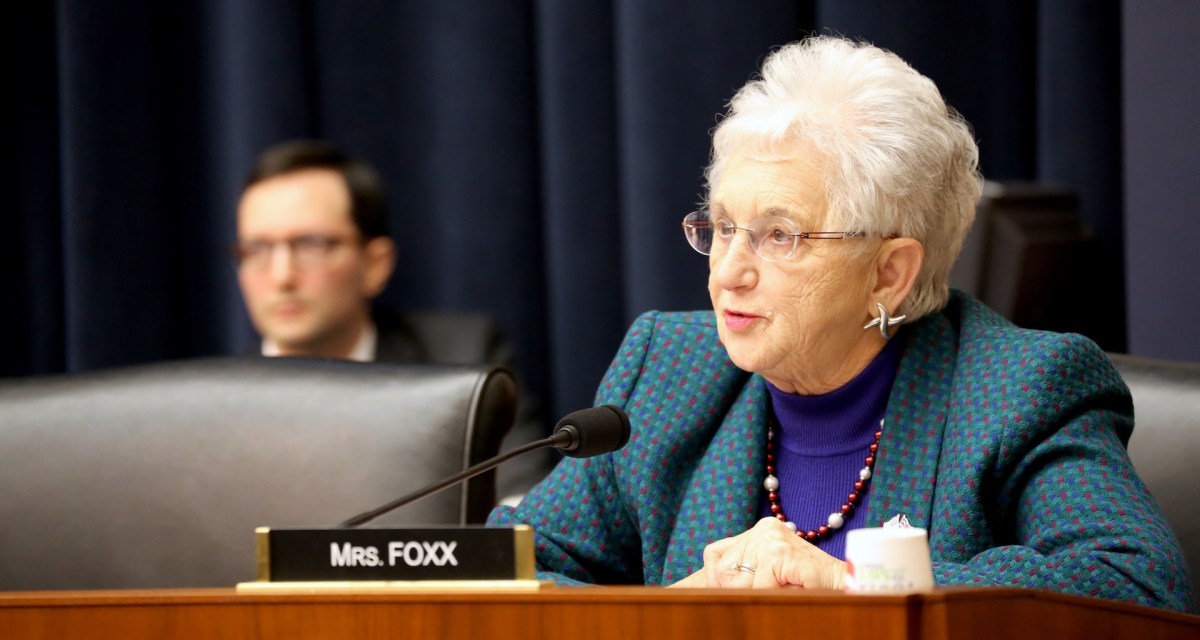GREAT Act proponents hope for ‘organic’ grants transformation

The legislative directors for Reps. Virginia Foxx, R-N.C., and Jimmy Gomez, D-Calif., took the stage Thursday to explain how the government’s $600 billion in annual spending on grants could be more efficient if all those programs had the same data standards. It was clear from the reaction by agency officials, though, that there are still a lot of details to sort through.
Foxx is the primary sponsor and Gomez is a co-sponsor of the Grant Reporting Efficiency and Agreements Transparency (GREAT) Act, which aims to lower the compliance costs related to how the government hands out grants each year. Foxx aide Carson Middleton and Gomez aide Andrew Noh came Thursday to the Grants Management Breakfast Forum at George Washington University to push for the bill.
“If all of our federal grants represented a single company, it would be the world’s largest,” Middleton said. “[Foxx] understood that if we could cut down on compliance costs even a small fraction, we would save taxpayers billions and free up more money for the original purpose of grants in the first place.”
The legislation, which the House Oversight and Government Reform Committee approved in February, would require that agencies use nonproprietary data taxonomies and identifiers for grantees. The plan is to standardize how the government reports its grants data much in the same way the DATA Act did for agency spending.
While federal officials in attendance Thursday were supportive of the bill, many of their questions centered on how to achieve the legislation’s goals at the agency level.
Among those issues are how agencies would apply standards to programmatic reporting, such as the progress updates that grantees have to file with the government and can be diffuse in formatting, even across individual offices within an agency. Another concern is how to ensure that agencies actually adopt any standards.
Middleton and Noh acknowledged that because many grants are established in federal statutes, their requirements are disparate. They noted, however, that the GREAT Act would authorize the Office of Management and Budget to craft flexible guidance for agencies.
In terms of incentives or other levers that could push agencies to adopt new standards, the two congressional aides said that the legislation could have the additional benefit of spurring new solutions that could make the grant process easier in general.
“The use of technology and software to help standardize everything, I think, will create hopefully some momentum within our government to get everybody on board in an organic way,” Noh said.
Noh added that because of the speed of technology development in general, the bill is designed to not lock agencies into a specific technology — thus giving OMB a lot of latitude on how to shape compliance.
“This is going to be one of those rare pieces of legislation that leaves it open and where policy tries to keep up with the times,” he said. “Technology is, I would say, 15 years ahead of the policy we write on [Capitol] Hill. This is something that we want to happen organically. Say what you will about the agency process, you guys are a lot faster than we are in a lot of respects.”
The bill is awaiting a Congressional Budget Office score before it can get a potential House floor vote, but Middleton said that interest has been expressed in the Senate to possibly developing a companion bill.
The President’s Management Agenda also has touted standardization as one of the key strategies in its data management piece.




